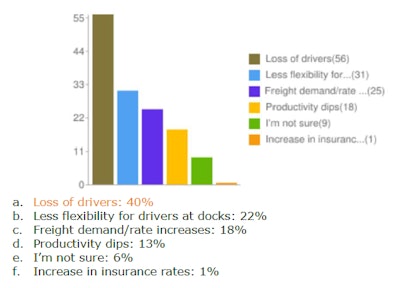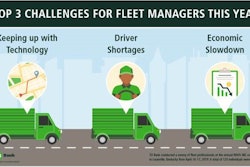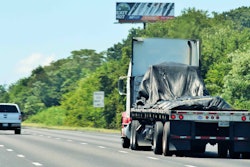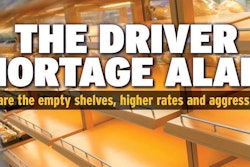It’s no secret a multitude of drivers have expressed plans to hang up the keys as a result of the mandated ELDs. We’ve seen cases and/or, at the very least, pledges of intentions to do it time and again, from the case of Brita Nowak in Florida to this look at owner-operator intentions around the ELD mandate as of Summer 2017, when a third reported seriously thinking about retiring or quitting the industry altogether as a result.
When it comes to independent owner-operators, as I alluded to somewhat recently, however, there is in fact evidence that there were more one-truck fleets with their own authority in operation in the first quarter of this year than last. A custom analysis by RigDig Business Intelligence found the independent owner-operator population showing evidence of activity in Q1 (meaning they’d been inspected by a jurisdiction reporting data to the federal system) had grown by about 1.4 percent compared to the numbers present on the road in Q1 the prior year, 2017. It was a particularly good winter season for rates and activity, and Q1 occurred before, of course, hard enforcement of the mandate went into effect on April Fool’s Day, when consequences for not having an ELD for non-exempt carriers started to get onerous with out-of-service orders accompanying violations. So that may not be the best measure of whether ELDs are impacting the numbers of own-authority owner-ops in business.
All the same, the antipathy to ELDs has been such that the loss of professional drivers as a result is one of the biggest worried-about outcomes of the rule, from top to bottom across the carrier-size spectrum.
Fleets spot-surveyed by TD Bank reps at a recent meeting of the NAFA fleet manager’s association agreed most that a primary ELD impact would be the loss of drivers.
How do you believe the implementation of ELDs will impact the industry?
 This question in the survey was a multiple choice question, and the percentages survey-takers note at the end are for the choices in aggregate. But to put the 56 respondents who noted a “loss of drivers” with the ELD mandate in perspective, that is out of 100 total conference attendees surveyed, so more than half.
This question in the survey was a multiple choice question, and the percentages survey-takers note at the end are for the choices in aggregate. But to put the 56 respondents who noted a “loss of drivers” with the ELD mandate in perspective, that is out of 100 total conference attendees surveyed, so more than half.The result shown also has been mirrored in other analyses and follow-on effects, whether that’s the American Trucking Associations’ recent success in promoting the notion of a “driver shortage” via a blizzard of mainstream-media stories (and as I’ve noted before, few of which do more than mention the reality of the mandate, if they mention it at all) or the Coretex fleet-management solution/ELD provider’s recent customer survey.
Coretex found, according to a press release announcing survey results, “slightly less than half of fleet operators (47 percent) believe the ELD mandate is good for the transportation industry. Over two-thirds (69 percent) of the companies said ELDs do not improve driver satisfaction, and 33 percent indicated it is more difficult to retain drivers due to strict HOS compliance.”
None of which, I suspect, might be very surprising to this audience. Nonetheless, mainstream media could get themselves a little officially sanctioned data to undergird potential reporting on the driver-dissatisfaction/mandated-ELDs subject if a recently introduced House bill is successful. Add H.R. 6159, introduced by North Dakota rep. Kevin Cramer with no cosponsors, to a veritable blizzard of bills around hours and ELDs, and we might flip coins as to whether it will be one that melts on the pavement.
The bill, should it succeed, would require the DOT Secretary to study the extent to which the ELD mandate has driven professional drivers from the industry. It won’t count the independent owner-ops who shut down, however, limited as it is by the principal directive it gives the Secretary to …
… conduct a study to determine how many “employees” (as defined by section 31132 of title 49, United States Code) who must comply with the electronic logging device requirements issued pursuant to section 31137(a) of title 49, United States Code, have ceased being operators of a “commercial motor vehicle”…
“Employees” is defined to include independent contractors, or owner-ops leased to carriers, so that’s something. Rep Cramer, introducing the bill, also posted this to Facebook, for what it’s worth:
I introduced H.R. 6159 to require the U.S. Department of Transportation to conduct a study about how many of our great…
Posted by Congressman Kevin Cramer on Monday, June 25, 2018
Another one to keep an eye on.









